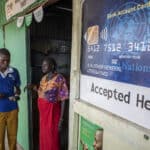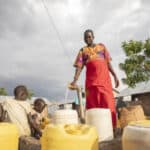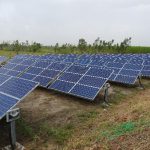We have only just started working in the KK area. However, we have two key pieces of advice:
- Find a strong supporter at UNHCR who likes what you are doing, this has made accessing potential partners and government officials much easier.
- Recruit local staff. They understand the culture and systems.
We look forward to bringing the gift of good sight to the estimated 35,000 people who need eyeglasses; enabling them to learn, earn and live better, and prevent issues of low self-esteem and compromised
safety.
In the next 5 years, our work in the KK area will provide a springboard into northwest Kenya and neighbouring regions. We are expanding eyecare accessibility and the distribution of truly affordable eyeglasses. Ours is a sustainable model without any subsidy.
This is the first time we are operating in the KK area and the first time we are operating in a predominantly refugee context. Fortunately, we were able to hire from the host community, thus leveraging the experience of gained from working in the camp with networks of agents. UNHCR have also been immensely helpful in navigating the various health partners in the camp as well as engaging the local government.
The core essence of WSV’s mission is to support communities to address fundamental development barriers. In DOT Glasses, we seek out underserved communities with no basic eyecare options or glasses distribution. The KKCF funding has enabled us to bring DOT Glasses to an isolated and high-risk location to establish sustainable foundations and scale within a significantly reduced timeframe and overall cost.


